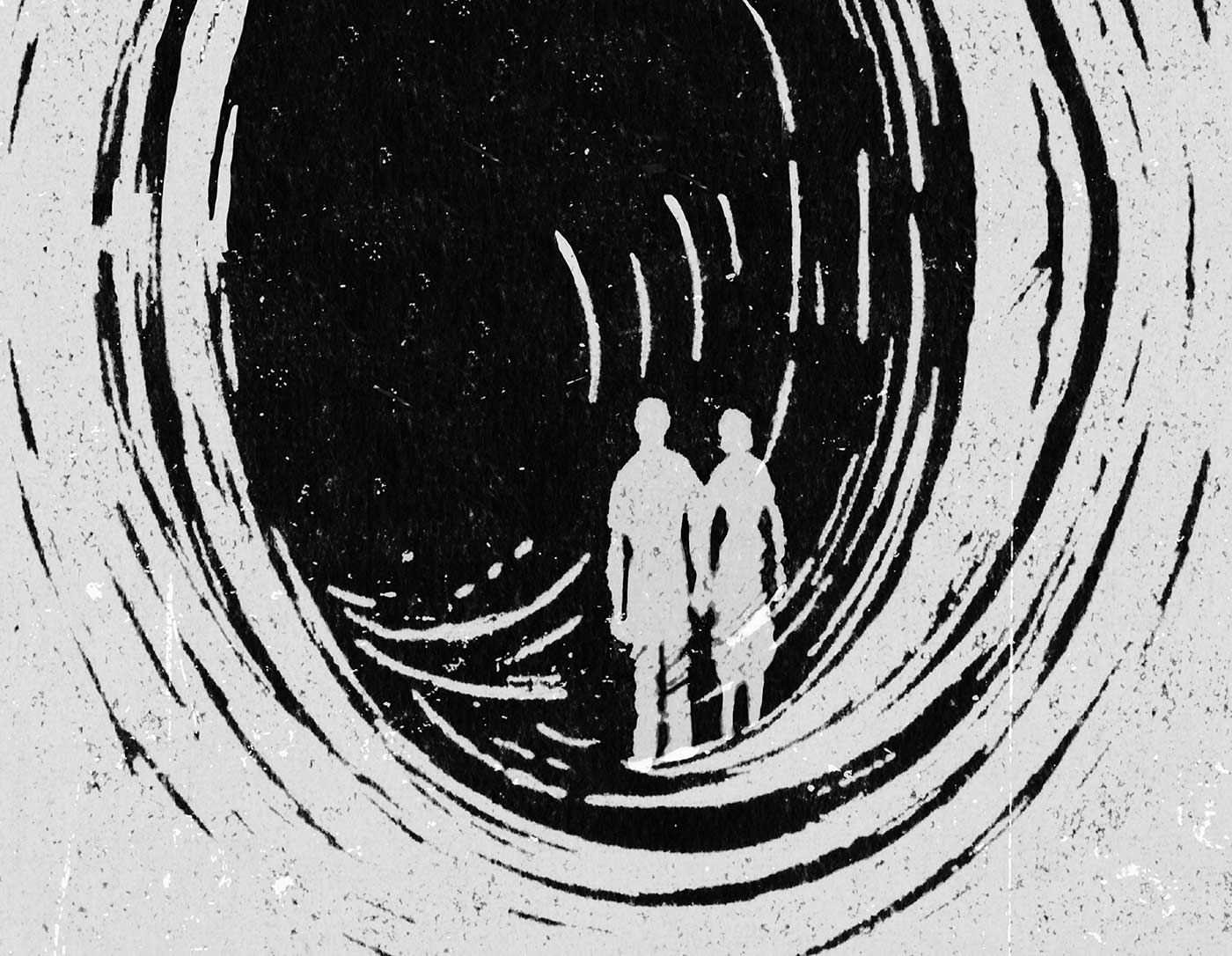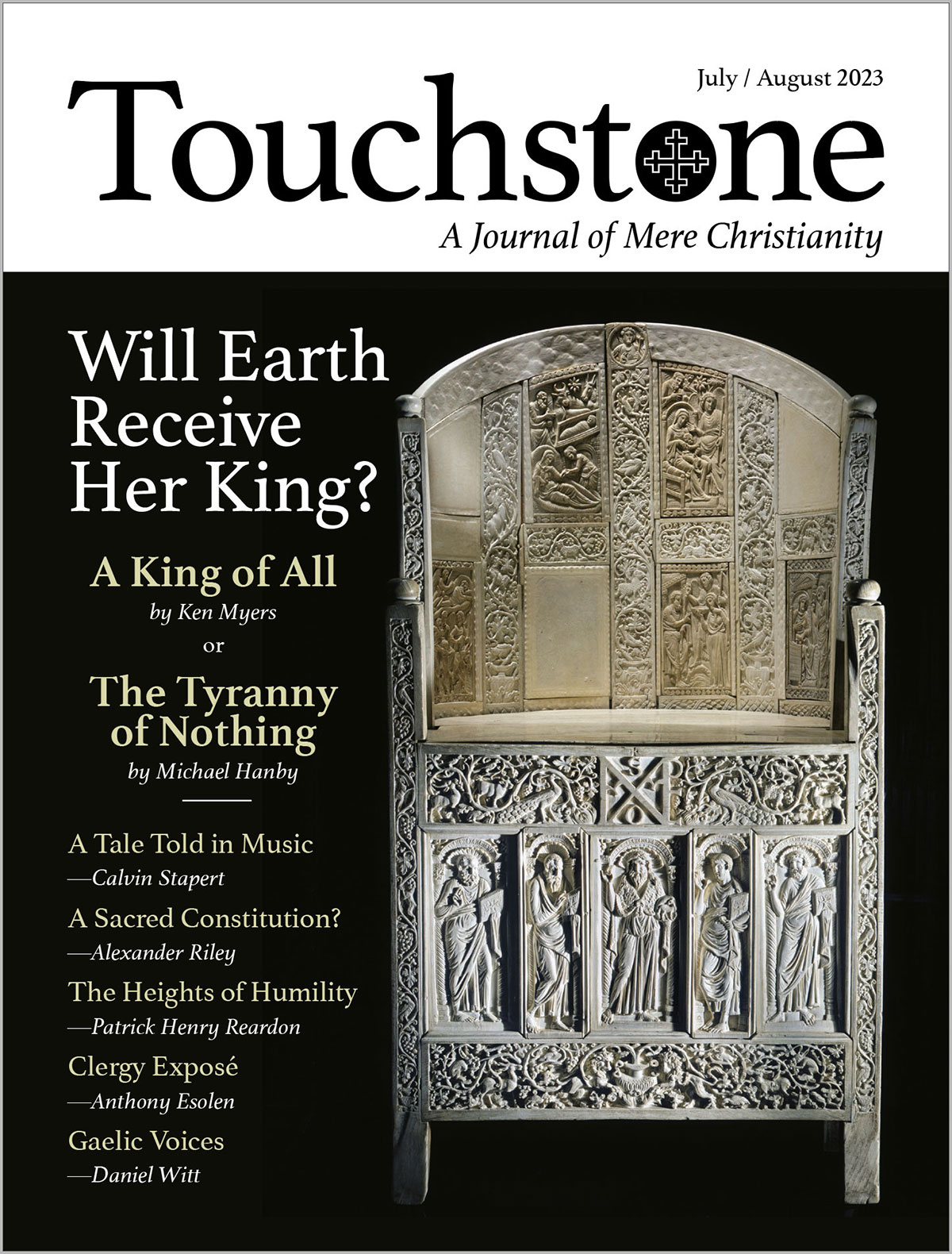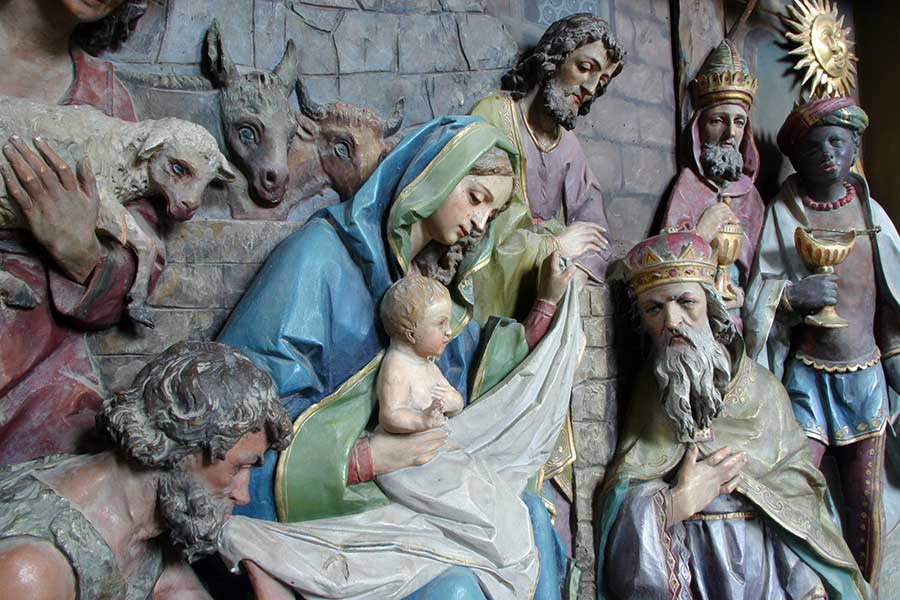Nothingness Rules
Our Political Void & the Disintegration of Truth
by Michael Hanby
American politics, regardless of one’s political persuasion, seems characterized above all these days by a sense of dread. But there is no agreement about the meaning and origins of this dread. That those on opposite ends of the political spectrum give diametrically opposed accounts of it and regard the other side as the repository of their darkest fears may turn out to be one of its deepest symptoms. And since there is no longer any aspect of American life outside the political spectrum, this sense of dread hangs over just about everything. How are we to understand this?
It has been astonishing to discover in recent years just how fragile is the unspoken consensus underlying civil society. None of us predicted how fully our electoral politics would descend into farce or anticipated just how quickly the fragile bonds of our liberal order would go up in flames. Yet the riots of 2020 and the aftermath of the Dobbs decision—to say nothing of the frequent spasms of mass violence roiling our society—call into question whether even the basic efficacy of the law can outlast the wholesale loss of faith in the foundations of its authority or the discrediting of authority as such, phenomena seemingly as widespread among those responsible for executing and enforcing the law as among those who feel themselves chafing under it.
None of us anticipated the breadth, much less the success, of the cultural iconoclasm aimed at destroying the entirety of our civilizational memory nor, I daresay, how quickly and thoroughly human nature, already effectively demolished by a reductive and functionalist science, would be abolished in culture, language, and law. None of us foresaw the scope and power of our decentralized surveillance system—the mutual surveillance of all against all.
Such pervasive violence, despair, and disintegration raise fundamental questions both about the success of the American experiment and about the future. What is left to a people who have believed only in politics when their faith fails them, when they simply cease to believe in the foundations and principles of their own civilization and the myths that made them a nation? Are bureaucratic entanglement and a common antipathy toward reality enough to sustain their unity as a people?
Elsewhere I have tried to show that the moralism and pietism of American Christianity, and even, sociologically speaking, its relative vitality in comparison to Europe, is consistent with the death of God and the absolutization of politics, system requirements of the order in which we live. What is left to a people who have believed only in politics after they lose their faith is “nothing,” or perhaps “The Nothing.” And what follows the failure of politics is not another form of political order but most likely the end of political community as such and therefore of properly human self-government. We are on the cusp of a new age that is at once post-political and post-human, and both for the same reason.
The Power of Nothing
In the twelfth of his Screwtape Letters, C. S. Lewis’s senior demon quotes a characteristically beautiful collect from the Book of Common Prayer, which addresses God as the One “without whom nothing is strong.” Lewis’s devil adds the brilliant twist that
Nothing is very strong: strong enough to steal away a man’s best years not in sweet sins but in a dreary flickering of the mind over it knows not what and knows not why, in the gratification of curiosities so feeble that the man is only half aware of them, in drumming of fingers and kicking of heels, in whistling tunes that he does not like, or in the long, dim labyrinth of reveries that have not even lust or ambition to give them relish, but which, once chance association has started them, the creature is too weak and fuddled to shake off.
It’s a pretty good description of our nation of Last Men, addled by every kind of pharmacological and digital anesthetic and by a system of public instruction that has long confused education and ignorance. Still, I want to suggest that our time is revealing Nothing to be much stronger than even Lewis imagined.
There seems to be a powerful nihilism haunting our social order, a “spirit of negation,” to borrow a nineteenth-century term. Americans are inherently pragmatic, which makes our nihilism as superficial as our native optimism. Where reality has no depth, the abyss seems rather shallow, which is why, for example, we can seize and redefine the basic constituents of human nature—man, woman, mother, father, child—with hardly a serious thought about what we are doing. We are incapable of apprehending the gravity, much less the ramifications, of our deeds. And yet it may turn out that this very shallowness, the absence of real thought if not the incapacity to see and be moved by the truth, is a measure of nihilism’s triumph. Categories such as “liberal” and “conservative” and basic concepts like “rights” and “liberty” do not comprehend our nihilism so much as presuppose, and therefore inadvertently perpetuate, it.
Michael Hanby is Associate Professor of Religion and Philosophy of Science at the John Paul II Institute at the Catholic University of America. He is the author of two books and numerous essays and, as part of the movement to renew Catholic education, has co-authored the curricula for two schools.
subscription options
Order
Print/Online Subscription

Get six issues (one year) of Touchstone PLUS full online access including pdf downloads for only $39.95. That's only $3.34 per month!
Order
Online Only
Subscription

Get a one-year full-access subscription to the Touchstone online archives for only $19.95. That's only $1.66 per month!
bulk subscriptions
Order Touchstone subscriptions in bulk and save $10 per sub! Each subscription includes 6 issues of Touchstone plus full online access to touchstonemag.com—including archives, videos, and pdf downloads of recent issues for only $29.95 each! Great for churches or study groups.
Transactions will be processed on a secure server.
more on conference talk from the online archives
more from the online archives
calling all readers
Please Donate
"There are magazines worth reading but few worth saving . . . Touchstone is just such a magazine."
—Alice von Hildebrand
"Here we do not concede one square millimeter of territory to falsehood, folly, contemporary sentimentality, or fashion. We speak the truth, and let God be our judge. . . . Touchstone is the one committedly Christian conservative journal."
—Anthony Esolen, Touchstone senior editor











